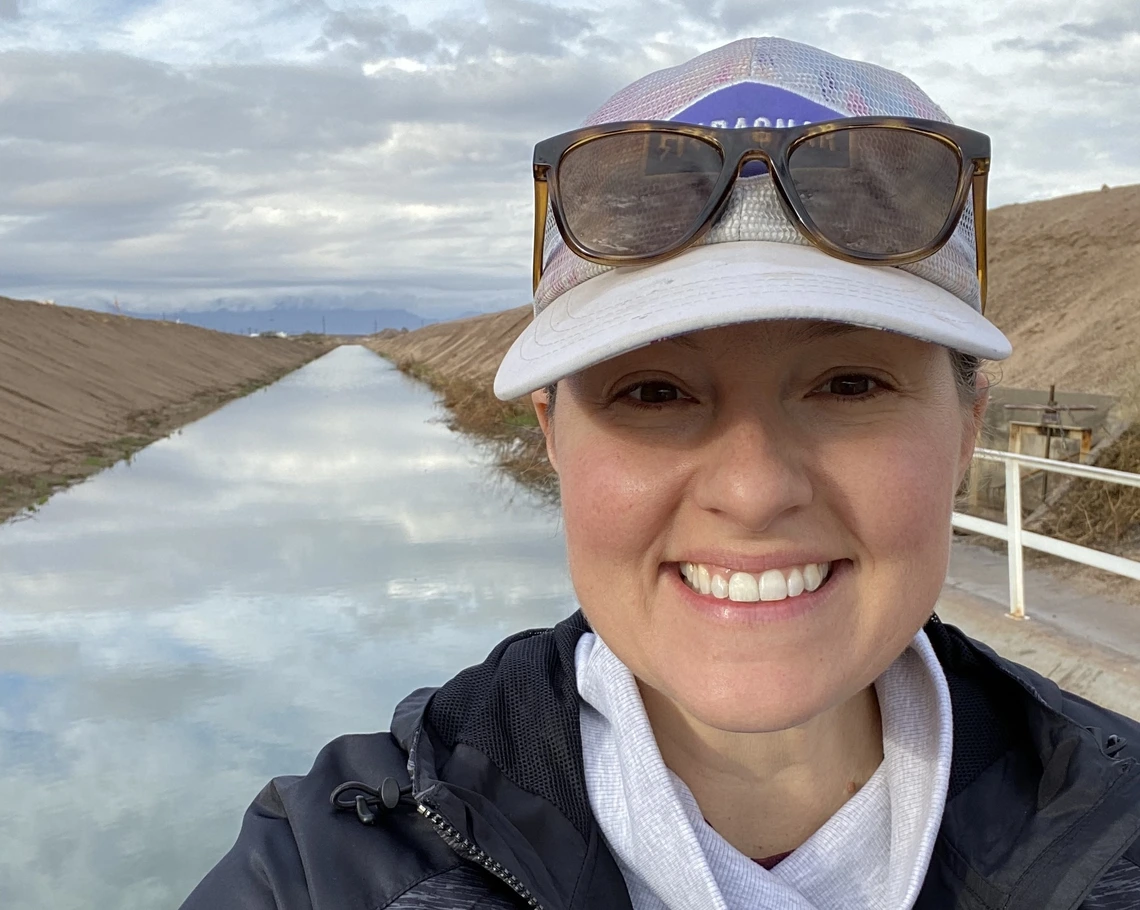Extension's Channah Rock Among 2024 University of Arizona Women of Impact
The water quality specialist and environmental science professor has broad impact through her work in food safety.

Photo courtesy Channah Rock
When Environmental Science Professor and Extension Specialist Channah Rock was younger, like many girls, she dreamed about being a marine biologist.
Then when she got to college, there was problem. She still loved science and wanted to study biology, but she was almost 400 miles from the ocean.
“I think every little girl wants to be a marine biologist, right? You think about, ‘Oh, I want to work with dolphins.’ But I lived in New Mexico in the middle of the desert … I ended up volunteering in a microbiology lab and got exposure to environmental microbiology, and I loved it,” she said.
The water quality specialist at Maricopa Agricultural Center was recently named one of University of Arizona’s 2024 Women of Impact. The award is given annually by the Office of Research, Innovation & Impact to women on campus who drive discovery and innovation.

Rock’s work in food safety and water quality led to her nomination, said Joan E Curry, Ph.D., interim head of the Department of Environmental Science, and Jon Chorover, interim Dean for Research, Division of Agriculture, Life and Veterinary Sciences and Cooperative Extension, who nominated the 18-year Extension veteran.
“Her impact is felt in the economy of specialty crops throughout the vegetable growing regions of western Arizona and more broadly through her influence on the science and technology that prevents microbial contamination of vegetables,” they wrote in their nomination letter.
Rock’s work with the Environmental Protection Agency, U.S. Food and Drug Administration, Centers for Disease Control and Prevention, other government agencies and private industry ensures that food is safe from the field to the store.
She has a masters degree and Ph.D. in environmental engineering from Arizona State University and is the Jim Brennan Endowed Chair in Extension, Fresh Produce Safety in the U of A College of Agriculture, Life and Environmental Sciences. She came to Extension when was volunteering in a USDA lab in Maricopa, and a job came up at MAC. She got it and quickly learned the value of science-based decision-making, she said.
“What I found early on is that a lot of folks, either in the policy space or growers, are making decisions based off of assumptions or perception of risk and not decisions grounded in actual science,” Rock said
Being a faculty member in Extension is different from more academic teaching or research jobs. Extension is often about boots-on-the-ground science that quickly answers current stakeholder questions, not research that might take years or even decades to lead to real-world solutions.
“We have the ability to conduct this research with growers on the farm, to answer these questions for them, and then communicate that back to them in a way that's easy for them to use. A hundred percent of the work I do either informs policy, to change or modify a regulation, or industry practice,” she said.
Another big part of Rock’s job is listening. Extension can only respond to agriculture’s needs if scientists like Rock hear what those needs are.
“Driving around, sitting down with those stakeholders, either at community forums or one-on-one, or meeting them in the field and just listening, right? What are the issues you're facing? What could make your life easier? And then taking that and translating it into a question that we can apply research to and get answers,” she said.
As a woman in science, Rock is consciously paving the way for other potential scientists – interns who are mostly girls from Phoenix-area high schools. They often come to MAC thinking science means being a doctor or a nurse.
“Then we take them into the field, expose them to the idea of environment and agronomy and agriculture and industry. Almost all of them switch really fast and say, ‘Oh, my gosh! I didn't realize that these are jobs. I didn't realize that I could have a career in the environment or in agriculture and in science,’” she said.
Rock will receive the Women of Impact award at a November 7 ceremony. See the Office of Research, Innovation & Impact website for more information and a list of other Women of Impact.

